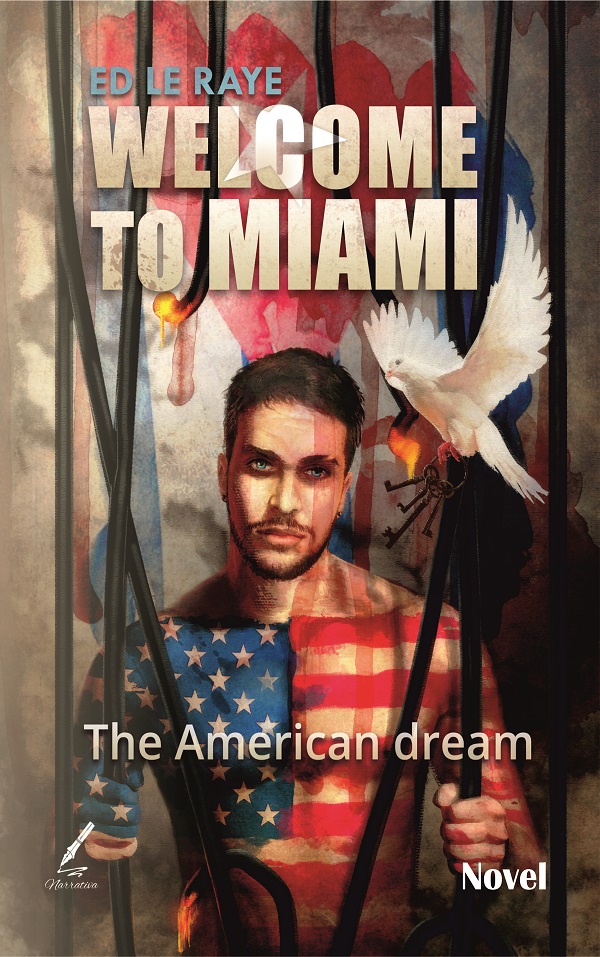Descripción
Fragment of the first chapter
WITH WATER ON THE NOSE
If was a warm September night in Cabaiguán, a city locate in the center of Cuba. The stones were sweating, not even a leaf was moving, and there was a terrifying silence that was interrupted by a hungry cricket crying in the distance. Luisito could not sleep because the Russian air conditioning was louder than ever and cooled less by the hour; then, the phone rang at midnight. He looked strangely at it, as that device was a luxury, and managed to seize it from the Cuban Government as something necessary for what he had already set up to get out of that island of the devil. Like Papillon, in his confinement in French Guiana, he did not renounce to escape. It was 2004, and on more than one occasion, the Castro’s communist dictatorship had played a trick on him in his attempt to leave the largest of the Antilles. He had prepared everything this time and was looking forward to this call, but much earlier instead:
“Yes,” Luisito answered as he tried to settle into his chair, which squealed when he rocked and although no matter how many times, he nailed it over and over, it would not shut.
“It’s me.”
Well, of course, it’s you, Luisito thought. Who else would it be at this hour?
“I’m going to speak only once; I’m not going to repeat it, and I have to finish as soon as possible.” Luisito’s eyes were open, and a chill ran through his entire body. Tomorrow you are going to travel with someone, and she has already seen your photo. At the Havana airport, she will give you a signal. She is a twenty-year-old brunette; you won’t talk to each other there or even in Germany. After you leave German customs, you will join and pass as a couple. You must help her; she is very nervous.”
“And who helps me?” There was considerable doubt in his tone.
“You’re fine. You will ask for a train to France, mind you! That train will stop, and you must, in ten minutes, catch another one that continues to France; if you don’t get on it, there may be problems.”
“In Germany, do they speak English?” Luisito inquired as to if he knew how to speak that language.
“When you get to the airport in Germany,” Luisito’s tour guide continued, “you’ll walk where everyone else walks. In immigration, she will follow you and, in addition, you will walk fast as they all do it because they are in a hurry, and they know where the exit is. When you are there, you place the phone to your ear and you speak as if someone was listening to you. I already told you about the clothes nada de cubaneo[1] like a sweater and tennis shoes, instead wear a light long-sleeved shirt, and no jeans.”
“OK,” Luisito whispered.
“Remember to go to a female immigration officer. She will go to the window with a man. When you get to France call me and there I will give you the new instructions.”
Luisito remembers that it was like that; everything was very divide and each explanation at its time.
“OK. Let me ask.”
It was too late: they had hung up, and the phone was silent. Luisito went to the bathroom where he was part of the night because diarrhea did not leave him, and he no longer slept. The call had been made from the United States. The next day, before leaving Cuba, his brother-in-law checked the briefcase with Luisito’s clothes. He was aware that his suitcase would continue to Russia and would be lost in the way. Therefore, he took advantage and kept all the clothes and replaced them with his old-fashioned garments instead.
“Fuck, that’s older than Charles Chaplin’s clothes when he was a corner pimp, he laughed.” “Hey, if they open the briefcase, I’ll be screwed because I’m not fooling anyone with those clothes.”
It was crazy because if they opened his briefcase indeed, they would detect the fraud and he might be in serious trouble because they wouldn’t let him go on.
Arriving at the airport, facing Cuba’s immigration questions, was somewhat tense due to the repetitiveness.
“Why are you traveling? How much time do you travel for?”
Luisito showed his Cuban passport, opened it to the section where his photo was. The official looked carefully at the document fixed her eyes on it, one, two, and even three times. He basked in his anguished face until she gave him the expected signal:
“Go on.”
Those people, when they saw that the passengers heard the order to continue, they thought: “This is one more Cuban who will not come back, and I am staying.” When all was formerly checked and ready, he leaves to the waiting room. As agreed to, she did not speak to him and sat in front of him on her buttocks. Finally the flight was announced. He settled into the seat and felt his body relax, from here on, it didn’t matter where the plane landed, ’as long as if it’s outside of Cuba, please,’ he wished silently.
[1] Nada de cubaneo. Is a Cuban neologism contextualized in use of clothes, gestures and the way of acting of Cuban people.




